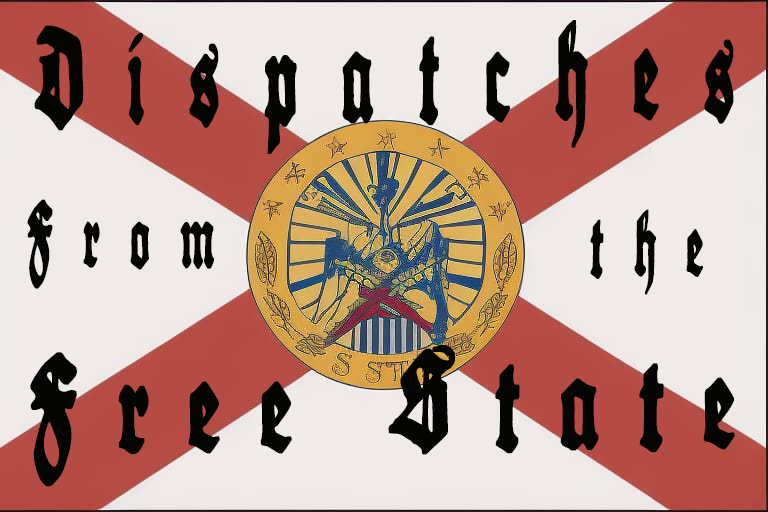If sociology has a role as a discipline it is to dig beyond the rhetoric of power and clarify the social facts that inform our lives. As such, there is no room for sociology to remain objective, any more than a physician should remain objective. As the physician should be biased toward curing disease and healing the sick, the sociologist should endeavor to mend tears in the social fabric. True, our pursuit of truth should be dedicated to the collection of social facts, but it is not enough to remain cloaked in the ivory tower, listlessly pouring over tables and content. It is our calling to bring the facts of society to the body of society to promote enlightened decision making.
In that vein, I read President Bush’s Farewell Address. For me, a sociologist and an activist, it has been a long, cold eight years. There were claims in the address that I knew to be false, but they are obvious to history and I will withhold comment on them thus far. But the claim that struck me was, in essence, a summary of the motivations of the Bush Administration and an example of the very thinking that sociologists should endeavor against–manicheanism, the concept of absolute good vs. absolute evil (interestingly, this concept is of Middle Easter origin).
This dualism has been present in the Bush Administration, and consequently, American foreign policy at least since 9/11. Of course, 9/11 offered the best possible symbolic imagery to perpetuate dualistic designs, a brutal attack on innocents from a malevolent, foreign power. When Bush decided upon a direction for addressing the terror attacks he was clear that this was a “crusade” and that one was either “for” Bush’s version of the war on terror, or “against” America. There was no middle ground. There was no room for alternative visions, and there would be no compromise. Thus, nations who had alternative approaches to dealing with terrorism and terrorists were immediately alienated.
In his farewell address Bush summarized and reinforced the Manichean principle. “The battles waged by our troops are part of a broader struggle between two diametrically opposed systems.” The one system, the bad system is perpetuated by fanatics. Our system, the good system, is promulgated by the certainty that freedom is a gift of Almighty God. It’s us against them, and they are the fanatics…not us. Are our enemies purely fanatics? and are we free of fanaticism ourselves? And what are the consequences when we don’t ask ourselves these questions?
And there is only one way to fight this battle. With arms. And we can offer no quarter to those who represent evil. According to Bush, “Good and Evil are present in this world, and between the two there can be no compromise.”
It’s us against them and there can be no compromise, no negotiation, no discourse, no hope for mutual understanding. We will either be victorious, or we will lose. Not only will we lose, but everything that we stand for will be discredited and the world will descend into tyranny. Of course these aren’t exact words taken from a Bush speech, but they are certainly thematic of the last eight years. But isn’t the very idea of an uncompromising battle between light and darkness, in and of itself…um…fanaticism! Can international policy be defined by those who blindly pursue their own extreme ideology without regard to difference?
If sociologists have learned anything in the last hundred and fifty years, or so, it should be that when we break the world down into distinct dichotomies, we are almost always wrong. This is equally true for politics. But we humans like dichotomies. Dichotomies like good and evil are a quick and easy way to make sense of the world. Sociologists do nothing but blur the lines of our comfortable dualisms and make everyone upset.
We ask the questions that make us unpopular. Questions like, are those we define as “terrorist” really nothing more than incarnations of evil? According to Ziad Munson in his Keyword column in Contexts Magazine, “Terrorism doesn’t result from disturbed personalities, psychopaths, or even individual rage or hatred; it’s a specific strategy…organizations choose because they believe it will help them gain recognition, highlight issues they perceive as being ignored, force concessions from existing power holders, or solidify the allegiance of supporters.” The same could be said of war. In invading Iraq and Afghanistan the United States was pursuing a strategy for accomplishing an end.
Munson continues, offering a summary of contemporary sociological research into “evil” terrorists. Terrorism is a response to very specific sociological conditions:
…Subjection to state violence: Every defined terrorist group has arisen in response to state legitimized violence, or state attempts to oppress a population by force. Al Qaeda is an offshoot of the famous Mujaheddin, groups dedicated to eradicating the Soviet influence in Afghanistan…a movement supported rhetorically and materially by the United States. This suggests that the conception of terrorism begins with victimization.
…No access to legitimate means of communicating dissatisfaction: This is, in essence, Strain Theory. The vast majority of people will attempt to find legitimate ways to redress their grievances. But when there are no legitimate means of at least expressing discontent, a population is more likely to pursue illegitimate means. I would imagine that turning to terrorism under these circumstances might be expedited by a charismatic personality offering a way to be heard, like bin Laden.
…International isolation: Groups that have international networks that are of value to them are not likely to turn to terrorism for fear of losing those networks. Only groups that have nothing to lose will find terrorism a viable, strategic option. This knowledge would suggest that “no compromise” is a sure fire way to entrench and reproduce terrorist organizations, not defeat them.
Munson adds, “Not only do military strategies designed to punish terrorism or eliminate terrorists fail, they also create and reinforce exactly those conditions that raise the likelihood of terrorism in the future.”
It’s also the responsibility of the sociologist to put a human face on the dehumanized. Your average terrorist isn’t a raving lunatic zealously indoctrinated into killing the Great Satan. He or she is a normal human being who has been victimized, or a party to victimization, with no hope of redress and no one to turn to. He or she also develops networks that lead them into a terrorist organization. Terrorist organizations work just like any other organizations. There’s division of labor, hierarchies and tried and tested ways of bringing in new members. To simply take the label terrorist, apply it to a strategic organization and then define that label as evil and uncompromising frames a very narrow perspective of the real issue, and does not lend itself to a realistic way of dealing with the social fact of terrorism.
Sociologists also adversely affect our chances of winning an academic popularity contest by applying the same standards used to evaluate others to evaluate ourselves. In his Farewell Address, Bush stated “murdering the innocent to advance an ideology is wrong every time, everywhere.” All right, I’ll buy that. I would suggest that murder, in and of itself is wrong regardless of the context, but I see where you are going.
Well, not really. Bush claimed that it is the mission of the United States to expand liberty throughout the world, into such places as Afghanistan and Iraq, for instance. But liberty is an ideology. It may be a good ideology, but it is nonetheless an ideology. How many civilians have been killed in Iraq and Afghanistan in the advance of US concepts of liberty. Estimates put the number of civilian casualties in Afghanistan at over 30,000 and in Iraq at over 250,000 to as high as 650,000. Doesn’t this offer a contradiction?
No. We simply do not define these hundreds of thousands of deaths as “murders.” Bush did not say that “collateral damage to advance an ideology is wrong…” So there’s no contradiction at all.
Robert A. Heinlein once wrote, “your enemy is never evil in his own eyes.” Perhaps we would be better off if we let science fiction writers define our foreign policy than ideologically driven zealots exemplified by the Bush Administration. Regardless, it is the function of sociology to disturb the clear and false distinctions of rhetorical dualism offered by politicians. I’m not one to hope for better from the incoming administration. I suggest that we force better from those in power.





Leave a comment